The Institute talks… about the EQA transition

This podcast was recorded for end-point assessment organisations (#EPAOs) who must apply for @Ofqual recognition by 1 July in support of external quality assurance (#EQA) reforms.
Charlotte Bosworth, managing director of Innovate Awarding and chair of the Federation of Awarding Bodies’ (FAB) End Point Assessment Organisation Group, Jessica Lewis-Bell, senior strategic relationships manager at Ofqual, and the Institute of Apprenticeships and Technical Education chief operating officer Rob Nitsch answer questions and provide guidance and insights.
EQA monitors the end-point assessment that apprentices take at the end of their apprenticeship, to ensure that it is fair, consistent and robust across different apprenticeship standards and between different assessment organisations.
Transcript
Paul Offord
Hello I’m Paul Offord I work in communications at the Institute for Apprenticeships and Technical Education and I’m your host for this podcast. Today we are going to be talking about external quality assurance transition with Charlotte Bosworth, Jessica Lewis-Bell and our own Rob Nitsch. Welcome all, would you like to introduce yourself?
Charlotte Bosworth
Hi I’m Charlotte Bosworth, the managing director of Innovate Awarding and the chair of the end-point assessment organisations group for the Federation of Awarding Bodies.
Jessica Lewis-Bell
Hi I’m Jessica Lewis-Bell, I’m a senior manager in strategic relationships at Ofqual.
Rob Nitsch
And hello everybody I’m Rob Nitsch I’m the chief operating officer at the Institute and within that I have accountability for both external quality assurance and end-point assessment.
Paul Offord
Great stuff I’m glad you can all join me. Right let’s get started, jess can you briefly explain what external quality assurance is?
Jessica Lewis-Bell
yeah of course so external quality assurance or EQA as it’s widely known. Monitors the end-point assessment that apprentices take at the end of their apprenticeship to ensure that it’s fair consistent and robust across different apprenticeship standards and between different assessment organisations. So Ofqual’s role is as an EQA provider we regulate end-point assessment organisations to ensure that they work to a high standard and we also ensure that the end-point assessment is fit for purpose.
Paul Offord
Okay and rob what do we mean when we talking about the transition process?
Rob Nitsch
Yes thank you Paul. The institute announced plans to move to a new simplified system for eqa of apprenticeship endpoint assessment back in last august. these changes will see eqa delivered now by ofqual or the office for students for integrated degree apprenticeships. and that means that the institute will stop directly delivering eqa but will continue to oversee the system in line with our statutory responsibility and we’ve put in place a framework to do that. it also means that though those other organizations that deliver eqa will also be handing over responsibility to ofqual and the office to students and what this means in the first batch so that transition um of those for whom the institute provides a service for open awards is that there’ll be a transition of over 260 apprenticeships over to ofqual and all related endpoint assessment organizations on the register will need to secure recognition from ofqual as part of that process.
Paul Offord
i see and when do endpoint assessment organizations who currently have their eqa delivered by the institute need to apply for recognition by?
Rob Nitsch
well first of all i’d like to say that the institute ofqual and of course the agency understand the extraordinary challenges that covid-19 have brought to the sector and the impact of the lockdown and how that has affected end-point assessment organizations. but of course there’s been a huge amount of pressure and uh you know we think that it’s particularly important to listen, to show flexibility, to respond uh where we can. and we’ve listened to concerns about the previously uh announced timings around the eqa transition process or sensor timings around the processor and we’ve decided to address this by extending the timeline. um so end point assessment organizations involved in this first phase so those people whose eqa is delivered by the institute which is in turn we contract open awards to do that, those organizations will now have until the first of july to make formal applications for the recognition from Ofqual and then they will then have until the 16th of December to complete the recognition process. And just a couple of notes to that if i could the first is that we really strongly recommend that all those that attend to imply begin the process as soon as possible so they’re going to wait until the first of july we and ofual would like organizations to start applying straight away and and some are also um we’re gonna transition transition standards as as soon as we’re able to and at that point eqa billing will cease for that apprenticeship so we will cease billing from the date of transfer and the final point i’d make paul is throughout this process uh together with Ofual uh the agency we’re absolutely committed to ensuring that quality is maintained and also very conscious of ensuring that apprentices are not prevented from sitting assessments during this transition process.
Paul Offord
great stuff and just to clarify when we’re talking about standards we’re talking about modern we’re talking about apprenticeship standards the employer-led apprenticeship standards that have that have come in um in place of the old apprenticeship frameworks
Rob Nitsch
absolutely correct paul and um as as hopefully everybody’s aware uh starts are now not permitted on to frameworks and those that are currently on their frameworks are um are running out and they’re separate arrangements for those
Paul Offord
okay and then i think this is one for ofqual to answer. what what will end-point assessment organisations need to do between the first july and the 16th of december so up to that second deadline that we mentioned
Jessica Lewis-Bell
yeah thanks paul so really this period is about as supporting epa’s with their application. um so if an organization is successful first time um then we will recognize them and let them know when their standards will transfer to us and those standards will transfer on a monthly basis. um sometimes organizations don’t get through our recognition process first time um i would say please don’t take that personally it can be a challenging task but we’re here to support you through that and the reason one of the reasons that we’ve extended the deadline is so that we can put more of that support in place so by enabling um a deadline of the first of july it gives us time for resubmissions up until the 16th of december. um so we’ve got a lot of support available and um there’s someone from ofqual that can uh can talk you through that when you meet with one of us and as rob said we’ve had a lot of applications in already which is really good news and i think the the last point really that i’d make is that as rob said sort of the existing eqa provision continues up until that point of transfer over to us so really that that time period from july to december is about the support and engagement that you can access from ofqual
Paul Offord
okay yeah i suppose it’s important to to get the message across that we shouldn’t view Ofqual and the recognition process as a as a kind of a scary thing it’s a positive that that it’s you are rigorous with your recognition process um but you want to help as many epaos as many people as possible to get through that you’re doing all you can to do that
Jessica Lewis-Bell
yeah absolutely we’ve put a lot of resource in place um we have sort of regular webinars um we’ve got a lot of resources and support and guidance um so you know if an organization hasn’t already been in touch with us then they should definitely sort of make that step but as you say it is a rigorous process so i think that the fact that we’ve got the deadline extension is helpful just in case people don’t make their first submission
Paul Offord
i see and another thing i know that’s very important is uh is it the institute wants as many endpoint assessment organizations as possible. so that’s large and small to make the transition why is this
Rob Nitsch
well that’s thanks paul so it’s probably one for me. um that is uh absolutely right Paul and i think there’s a key point to be made here but there is absolutely no underlying agenda to skew the market um we’re coming completely committed to that vision as is ofqual and as is the department for education um. and what we want is um as well as large providers we also want those um smaller specialists who were the choice of employers who have that great expertise and are really highly valued to add and this is not about controlling or influence the market in some machiavellian way um the whole of this process and you’ve heard already from jess about the support that ofqual putting in place the whole objective of this process is to get as many people as possible um through recognition so that we continue to operate a broad uh endpoint assessment organization, epao market which has large players as well as the hugely valued smaller specialists
Paul Offord
okay i think now i want to move on to the real bones of this podcast you know how can we help endpoint assessment organizations and what are the top five tips that oqfual could give to endpoint assessment organizations or epaos as they’re often called who are looking to apply jess
Jessica Lewis-Bell
yeah sure so um so yeah absolutely we value that sort of market diversity and it’s really um it’s really great to see sort of the diverse number of organizations that are applying with us. um i think the first thing i’d probably say is don’t underestimate the level of detail that we need. i think we’re very aware that epaos have gone through different processes with either the esfa or different eqa providers so to really concentrate on what ofqual is looking for there’s quite a lot of detail that we require within our application. and sort of linked to that is it’s really important to explain how you do things. so we’re really interested in how your organization is set up and run how you develop and deliver endpoint assessments and how you identify things like conflict of interest within your organization, so really a really important point is to consider to constantly think about the how rather than the that you have um policies and procedures in place. so really it’s about bringing your application to life a little bit so that we can understand the type of organization um that you are and how things are delivered in the field. so i think uh i’ve sort of probably combined two top tips there in terms of the level of detail and making sure that you explain the the how. um i think other tips i would say would be to make the most of your ofqual engagement lead so once you register with ofqual you’ll be assigned a contact that will support you throughout the process and that will be the same contact that is able to support you until you submit your recognition application. so you know really make the most of their expertise and all the resources that are available to you and they can signpost those to you. and i think the i think another really important point is to don’t necessarily assume that we know your industry um so we’re very much assessment experts we have a lot of assessment expertise in house we’re not necessarily industry experts, so you know if there’s sort of a lot of jargon in your assessment plan then you might need to consider explaining what some of those um some of that terminology means um or even you know sort of jargon in your sector that you might be quite familiar with some sometimes it helps to sort of provide a glossary um of of key terms or something like that. likewise you know if there’s if there’s certain things that are stipulated in the assessment plan and that’s why you do things the way that you do, then tell us that so it’s sort of drawing out things that are explicit there in the assessment plan. so whilst we sort of we use industry experts as part of our regulation and ongoing eqa the recognition team itself will be looking at your assessment capability so it’s really important to consider that throughout your application and remember that.
Paul Offord
Okay
Jessica Lewis-Bell
and i think the last point i’d probably make um as rob’s already said is don’t leave it until the last minute to submit um i think you know we’ve got we’ve got a sort of steady number of applications coming through at the moment which is really good and so we’ll continue to support organizations to make sure that happens
Paul Offord
okay and i’d like like just like to bring in charlotte now have you got you know any views on that anything that you could provide us the benefit of your experience with charlotte on this
Charlotte Bosworth
yeah so i suppose there’s a regulated epao who’s been through the process i’d say don’t over engineer your application be thorough. i think the main thing is demonstrating your competence as part of the process i would say it’s really important to be transparent on the way you work and operate. be able to articulate how you monitor and review assessments to ensure that fairness and consistency and quality. and also be clear where you have areas where you can feel you could do better and how you plan to improve. you know ofqual aren’t necessarily expecting to see everything in place but if you can show actually you’ve pinpointed where there are areas of weakness and what you’re actually going to be doing to improve them you know i think that’s something they definitely would want to see. so the regulator is in place to ensure the quality is retained so be clear on how you do this and i think that’s absolutely key in in applications. i’d also like to to come back to the point that both rob and jess have made around you know don’t leave getting in your application until the last minute. the worst thing i think is a mad rush by everybody getting an application applications in july i think the sooner we can kind of get an idea of who’s putting themselves forward then any extra support and advice and guidance can be put in place if there are people who need that support and to to maybe improve if they’re not successful first time.
Paul Offord
i see good advice thank you and um what is the actual process for endpoints say endpoint assessment organizations
Jessica Lewis-Bell
should i take that one
Paul Offord
i think so yeah so what do they need to do what process do they need to follow
Jessica Lewis-Bell
so um so we have a portal where the application is tracked and we sort of coordinate all of our engagement through there so if you are an epao listening to this and you haven’t already please register on our portal. if you’re not sure where to find that you can email us at [email protected] and that’s where we’ll assign you to one of the team who will be able to sort of kickstart that engagement and support you um with your application
Paul Offord
okay and you can also con people can also contact the institute with questions at [email protected] using the subject line eqa transition query. and uh okay moving to the next question um how will the actual transition process work in terms of when eqa changes over for each apprenticeship from the institute to ofqual. so what point will the the apprenticeships switch over
Rob Nitsch
yes great i’ll i’ll sweep that one up um the we’re going to run this process apprenticeship standard by apprenticeship standard. so we’re going to do it um in a sort of in a mechanized way like that and that. um we will only transition a standard when all the endpoint assessment organisations on that particular standard have achieved recognition or they’ve missed one of the two critical deadlines and the reason that we’re doing that is because we can’t have two organizations providing eqa of a particular apprenticeship standard because there’s certain empowerments to an eqa um and we need to make sure that those are exercised by only one organization
Paul Offord
i see and is there anything you’d like to add charlotte
Charlotte Bosworth
so um you know again i kind of come back to that point is just be honest, just be transparent in whatever you’re doing within your application uh jess has already talked about a number of the resources and support that’s available uh i’d also kind of signpost people to through the federation of awarding bodies, there is a whatsapp group which is there really just to kind of give that ongoing advice and support along the way so people you know can certainly access that if you uh go to the federation of awarding bodies website there’s a link there called quality clinics and that’s where you can access the the whatsapp group and you know just continue to engage with the institute with ofqual uh through their stakeholder relationship team and you know the federation are there to kind of help and support along the way as well
Paul Offord
great stuff and the nice thing about that whatsapp group as i understand is it’s fast responses is that correct
Charlotte Bosworth
um when when it when it’s not sent at two o’clock in the morning yes um but in in normal work days yes so so i’m the orchestrator of that group and you know what what we’ve found has been really helpful for people is we quite often see people are in the middle of completing their application there might be a question around governance where they just want a bit of clarity so we’ll pop a message in their group and people who are also going through the process as well as those that are already regulated you know are very responsive and everybody wants to help everybody be successful in their applications
Paul Offord
i see yeah good stuff and so the transition process it’s not just about transition from the institute to ofqual is the timeline being extended for all other endpoint assessment organizations that need to transition so to transition to ofqual from eqa providers other than the institute what are the new arrangements rob
Rob Nitsch
thanks paul and just to recap um the current situation is that eqa can be delivered by ofqual and office for students so some organizations are already in the um ofqual system so to speak uh eqa can also be delivered through the institute service that’s what’s provided by open awards and that’s the group that we’ve been discussing so far but there’s also another group of providers um and the other group of providers uh we’re committed to announcing how the migration arrangements for those organizations uh will happen um and we’re committed to making that announcement by the end of april and we’re working for that timeline paul
Paul Offord
okay and and what other organizations are they you know what other groups are there you know within the existing system what are the other the other types of groups
Rob Nitsch
they’re professional bodies um organizations which are linked particularly closely to sectors um and of course trying to bring all these together and to simplify it is what’s fundamentally at the at the root of the um of the transition that we’ve we’re trying to deliver here
Paul Offord
that’s right you know i see okay and um where does it want on a more broader scale where can end point assessment organizations look up advice so can we go into a bit more detail about that please jessica and charlotte
Jessica Lewis-Bell
yeah so um there’s quite a lot of information on on both of the ofqual website and the institute’s website um we have regular webinars that we invite all endpoint assessment organizations to um the esfa’s newsletter is a good port of information for signposting and as charlotte said we also run workshops through fab um and also aelp um so look out for those um i think if you’re an epao and you don’t really know where to start the best thing to do is probably to speak to your ofqual engagement lead or register on our portal if you haven’t already and then they that that person will be able to sign post as to where all those resources are
Paul Offord
i see in this i know ofqual of i’ve produced videos case studies that there’s all sorts of guidance out there isn’t it and so the big message is you know use it as early as possible if you possibly can i would say
Jessica Lewis-Bell
i was just gonna say we even got a youtube playlist now of sort of that brings together all the previous webinar recordings that we’ve done um and some of those are where epao’s who have been successful have sort of shared their experiences which is a really good learning opportunity so definitely want to check out
Paul Offord
good stuff and charlotte have you got anything to add
Charlotte Bosworth
yes yes so as jess has highlighted ofqual work to develop quite a lot of uh support resources but i think i think what we’ve recognized is sometimes organizations just want to kind of chat through some of the areas to check their understanding and get advice and jess has mentioned the relationship team uh within ofqual but there is also that whatsapp group we’ve also developed as part of the federation of awarding bodies a series of podcasts and these have come from the areas that we’ve seen as the most popular areas that people are questioning so it’ll be around governance, demonstrating your technical ability, understanding what the cost of being a regulated organization is and then also once you are recognized what are the continual measures you need to have in place to to ensure that you retain that regulation. so as i said if you pop over to the federation of awarding bodies uh website on there there is a link of quality clinics that has that additional uh support. from a personal level as well i also want to see as many organizations successful it’s in all our interest to retain quality so my email address is [email protected] and people can always reach out to me if i can also help them along the way
Paul Offord
thanks very much charlotte good stuff and what happens if endpoint assessment organizations aren’t successful in gaining recognition from ofqual
Rob Nitsch
paul the um it’s important to stress that these timelines are in phase one so that’s people who currently are on the institute service um. so if an epao does not apply by the first of july first of july this year um who would currently eqa’d on the institute service uh they will be removed from the register of endpoint assessment organizations. for those who have applied by the first of July but are not that they need to achieve ofqual recognition by december the 16th and if they don’t achieve that they will also be removed from the register. two points i would i would like to make the first one is that despite these timelines organizations uh are welcome to reapply for ofqual recognition and therefore membership of the agencies register um later but i would stress we’re trying to get as many organizations through the um through this process as we want to we want as vibrant to market in terms of epaos that we can possibly um achieve and also that uh as you’ve heard and has been a key theme of this podcast is that um we’re absolutely committed to working with endpoint assessment organizations to make sure that they’re successful uh and that is ahead of the application and uh during the application for recognition
Paul Offord
i see and just to clarify as you said what we’re talking about here these deadlines that’s just for phase one isn’t it
Rob Nitsch
correct that’s phase one so that is the current eqa is provided by open awards on behalf of the institute
Paul Offord
okay and there’ll be an announcement soon on in terms of what’s happening with phase two
Rob Nitsch
yes we committed in um our engagements to announcing this by the end of april um and we’re on track to do that
Paul Offord
good stuff okay and what will happen if no endpoint assessment organizations gain ofqual recognition by 16th of december for a particular apprenticeship so that’s kind of capacity isn’t it we’re talking about there what’s the contingency plan
Rob Nitsch
well the first point to make paul is that our absolute goal is to ensure full coverage um uh to that end it would be really helpful if our endpoint assessment organizations that decide they don’t wish to pursue ofqual recognition could make that known as um as soon as possible and that will allow us to encourage um uh other organizations to to offer a service for or offer an epao service for those standards but we’re also putting in place a sort of safety net mechanism that will ensure that no learners are left without an endpoint assessment organization but let’s be a centrally provided service but i would underlie that this is in uh in extremis and uh we would prefer that it was done a different way but the absolute priority is to migrate as many endpoint assessment organizations as it’s possible to do through the ofqual recognition uh process to provide this simplified eqa arrangement that we’ve been talking about
Paul Offord
okay and how confident are you that sufficient numbers of end-point assessment organizations will apply and that goes to jess at ofqual
thanks paul so yeah we are confident we’ve been working with organizations since the transfer of standards began in august so we’ve been working with well over 100 epaos that are sort of in that phase one category. we’re really committed to making sure that those organizations are successful um and we know that you know we know that there’s still a lot of work to be done and it’s really important that we keep on getting our messages out there through things like this podcast. um so really we just want to reiterate that what the deadlines are that to make sure that organizations are aware and that they can still work on our application and as has been said sort of throughout we’ve put in a really extensive plan of comms and engagement that began in august and we’ll keep on supporting and talking to as many people as many organizations as we can through this first wave of transition and also on to phase two
Paul Offord
thanks very much uh just drawing things to a close then everybody is there anything else that that you would like to say that you would like to get out there to our listeners
Rob Nitsch
well i think i would just underlie please engage with the process as um as early as as you can and also to just absolutely reiterate that that this is not about some form of market control or uh machiavellian move it’s it’s actually about trying to get as many organizations as possible absolutely as many as possible through the Ofqual recognition process um so that we have a really decent sized vibrant high quality market moving forward
Paul Offord
good stuff
Charlotte Bosworth
i suppose from my perspective you know i think when people hear the word regulator they assume it’s this scary non-facing organization but you know i can say from my own experience it’s a really approachable team that just want to retain quality and do what’s right for the system so so utilize the team there and recognize that they all want the same outcome as us which is high quality endpoint assessment
Jessica Lewis-Bell
so yeah thanks both i’d agree with that and it’s in ofquals interest to be able to support apprentices and to support learners which is one of the reasons that ofqual was established um so as has already been said you know really encourage you to make the most of the resources out there and we’re here to be able to support you through that recognition process as much as possible so please make sure you make the most of that and get in touch with us if you haven’t already
Paul Offord
great stuff okay then that’s all we have time for in today’s episode. thank you all for joining me and i hope end-point assessment organizations have found it useful. don’t delay do get in contact with ofqual and make sure you get your applications in as quickly as possible. thanks for listening and look out for the next episode. bye



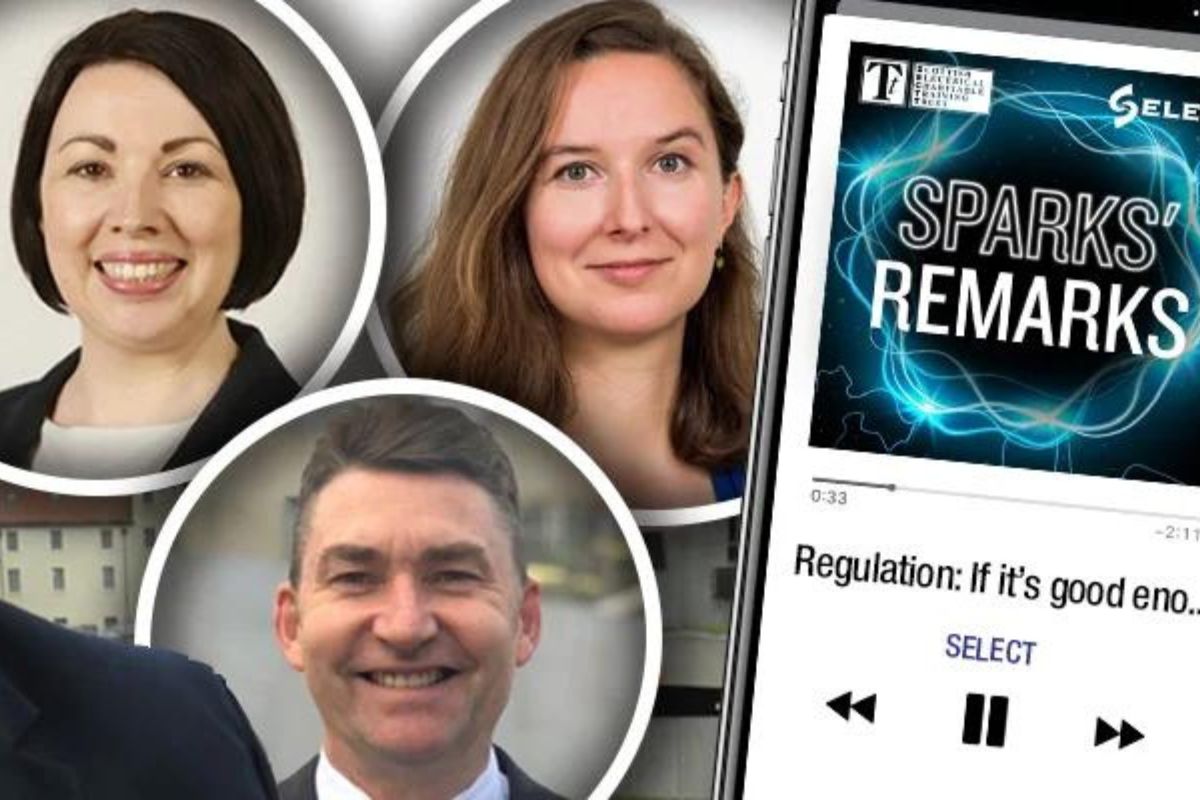
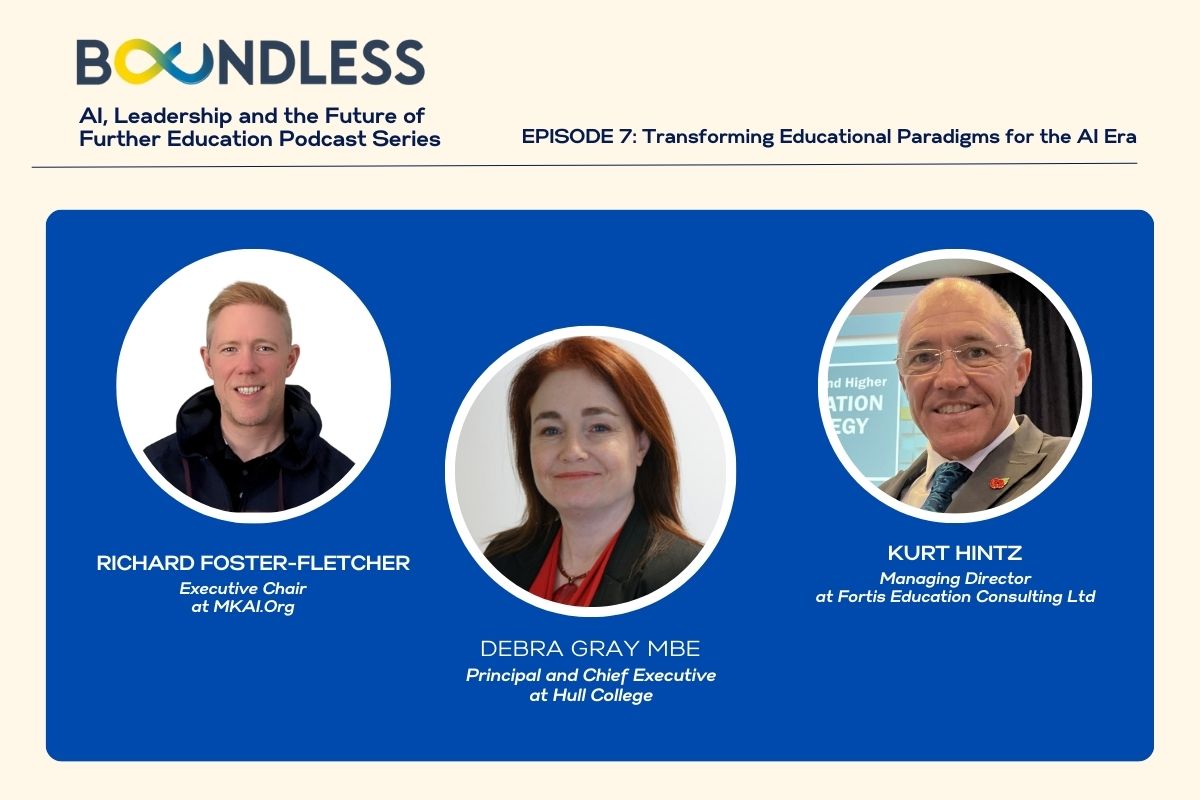
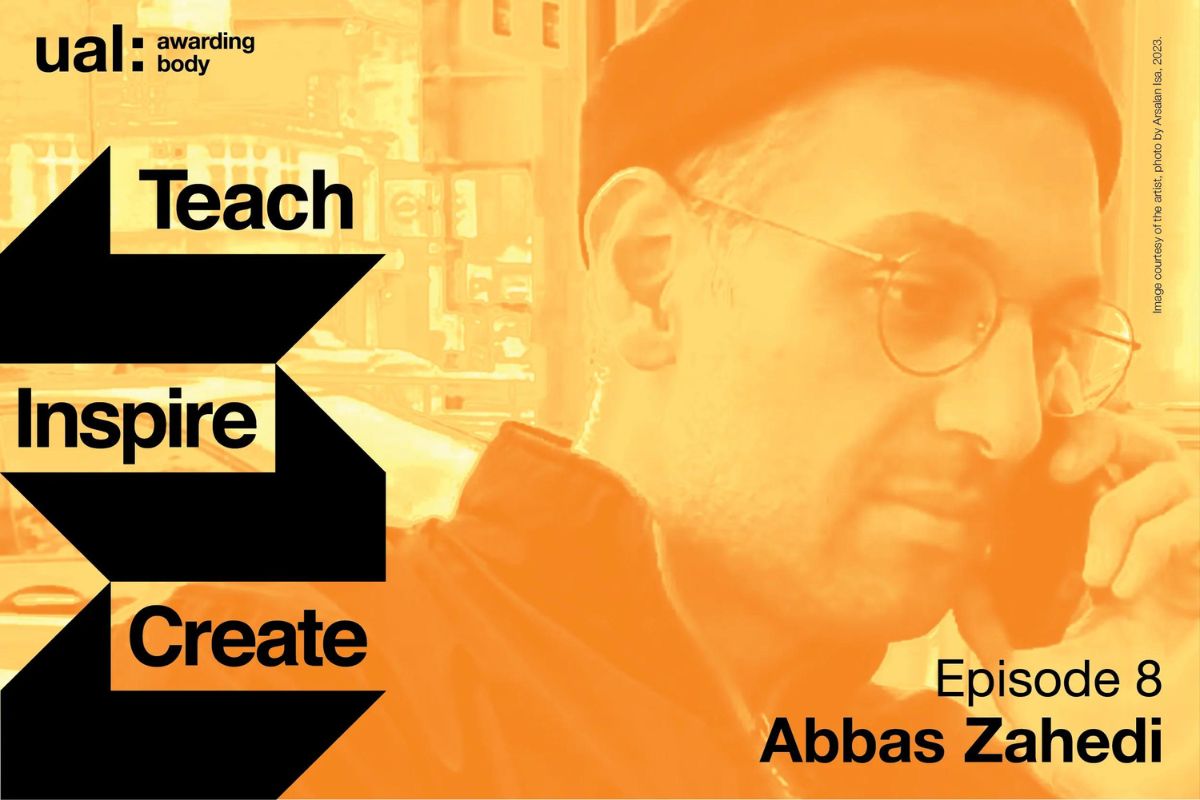
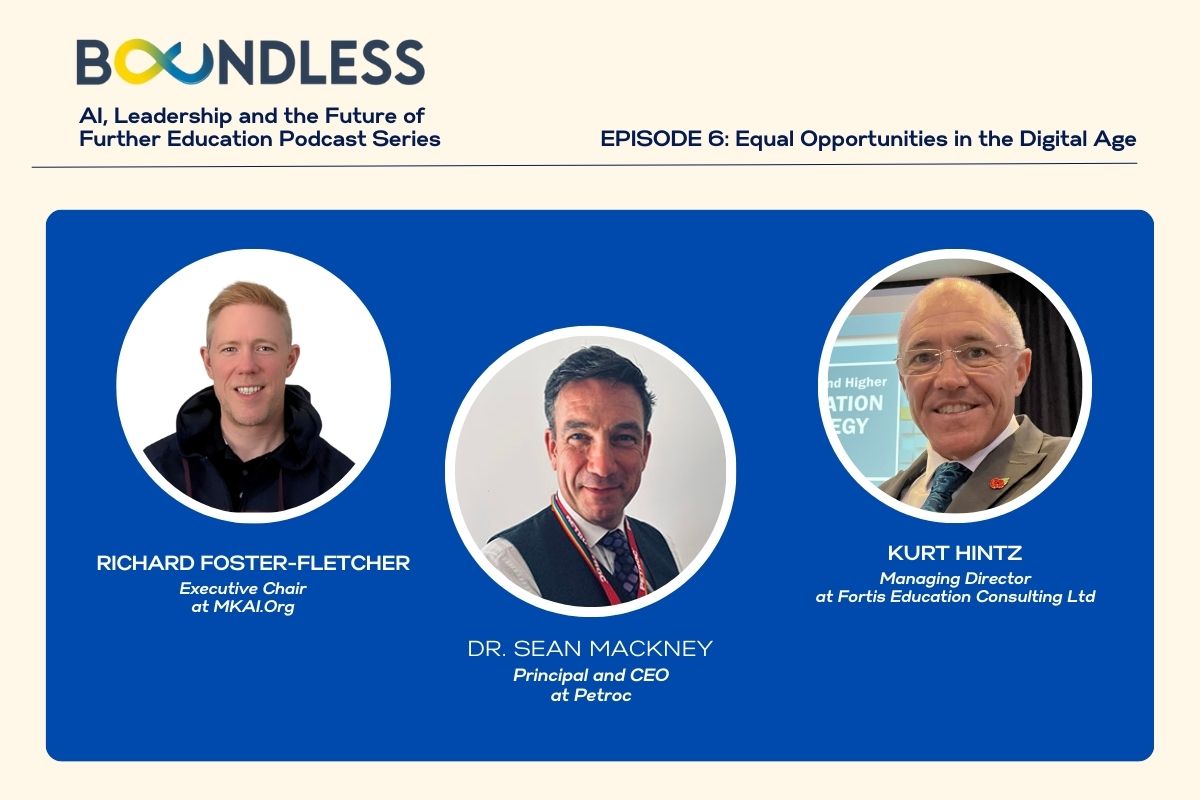
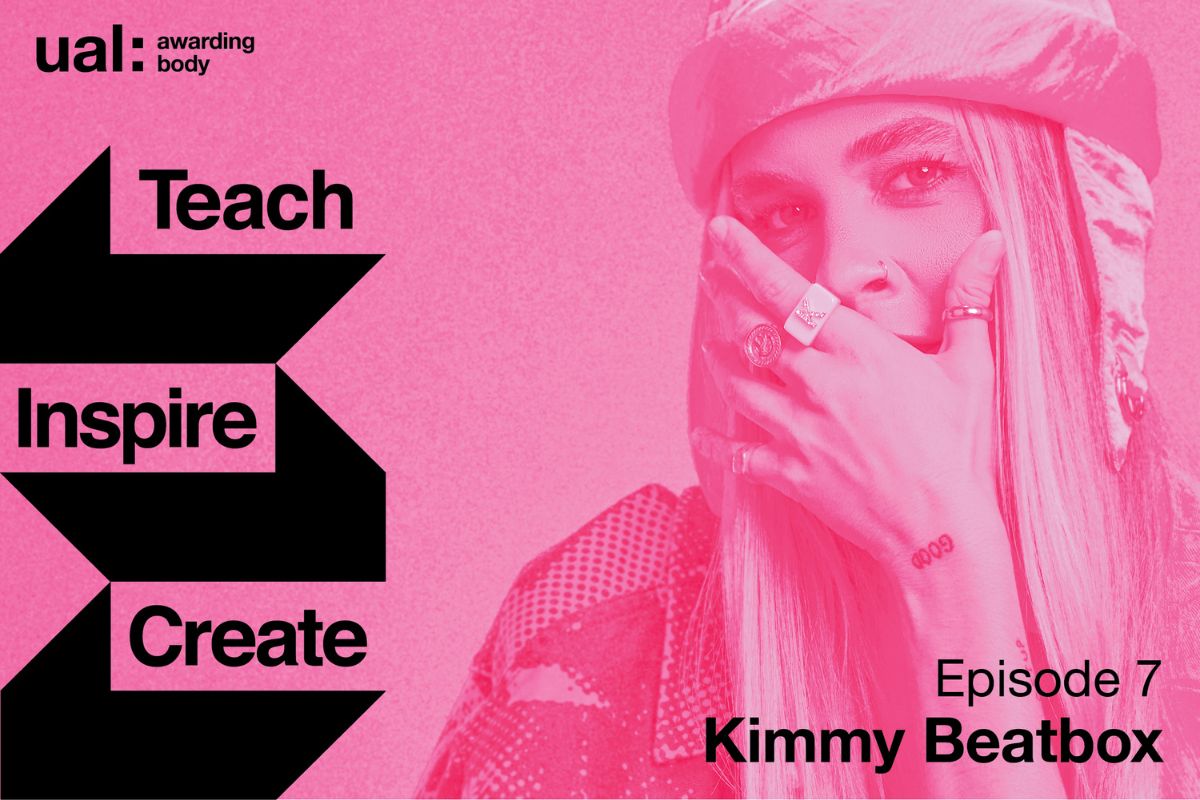

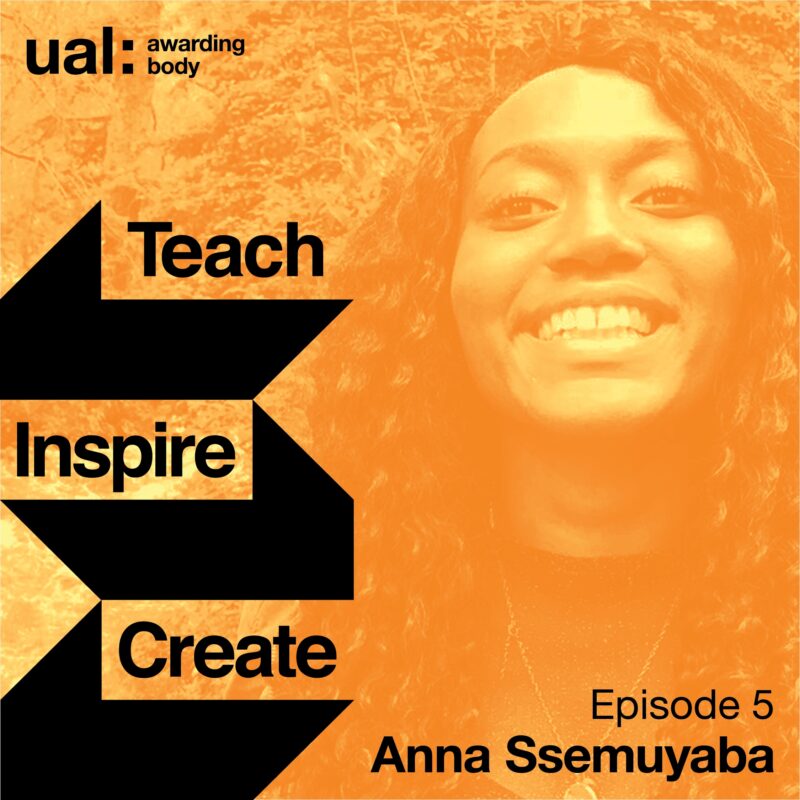
Responses